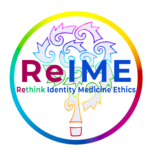
Understanding Gender Non-Conformity,
Gender Expression, Gender Identity,
Gender Dysphoria, Gender Ideology and Ethical Care
The term “gender” is commonly understood as referring to the social and cultural differences associated with the male and female sexes.
Individuals who are gender non-conforming either have traits, characteristics, mannerisms or appearance that does not conform to those socially or culturally associated with their sex (i.e., their gender expression), or whose self conception does not align with the social or cultural differences commonly associate with their birth sex (i.e., their gender identity). Individuals with a gender non-conforming identity have a self conception of the opposite gender, both genders or neither gender.
Not all individuals with gender non-conforming expression have a gender non-confoming identity and not all individuals with a gender non-conforming identity also have gender non-conforming expression.
Some gender non-conforming individuals, whether due to their expression or identity, have gender dysphoria. Gender dysphoria is discomfort or distress with a “marked incongruence between their experienced or expressed gender” (DSM-V) and the gender associated with their birth sex. Assessment of gender dysphoria is based on the individual’s likes and dislikes, including their discomfort with their bodies, how they are treated and their preferences around behavioral stereotypes.
Some gender non-conforming individuals undergo medical interventions (hormone therapy and surgeries) to conform their secondary sex characteristics with their incongruent gender-related identity, with their preferred gender expression, or to relieve/resolve their gender dysphoria.
The cause for gender dysphoria is not known, but is commonly understood to originate from a complex of bio/psycho/social factors, that may be different for different individuals.
There are various ideologies which hold different viewpoints as to the origins, construction and primacy of gender roles, expression and identities. Transgender Ideology (also referred to as Gender Ideology) posits that one’s “gender-related identity” is innate and immutable and that gender non-conforming identities are naturally occurring variants which supplant biological sex in primacy. Under this ideology, one’s self conception determines who you are and how you are to be viewed and treated. However, there is no objective evidentiary basis for this viewpoint, and other viewpoints include the view that one’s self conception is complex and emerges within the context of many factors that should be explored where the self conception is causing distress.
Ethical care for the treatment of gender dysphoria in minors provides respectful and empathic age appropriate exploration of the individual’s familial, social and psychological underpinnings, as well as, their identity and expression (including sexual expression) which inform and form their self conception.